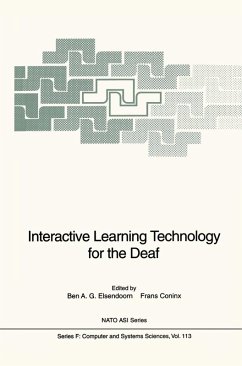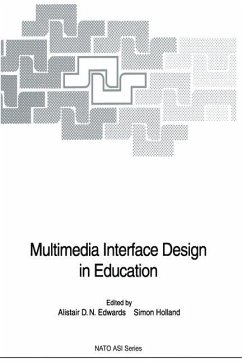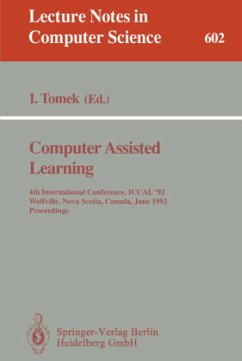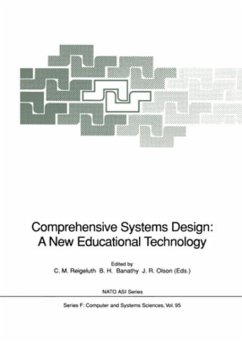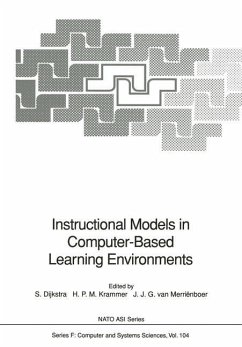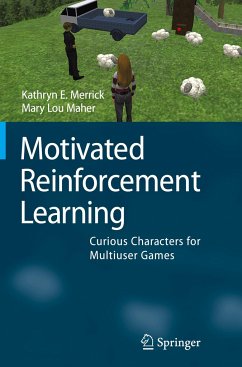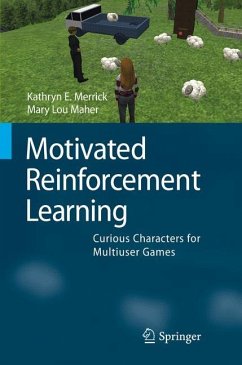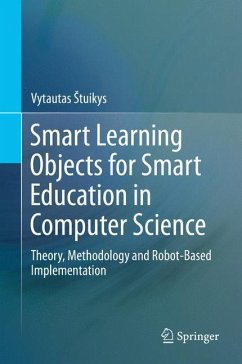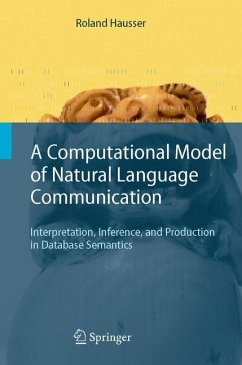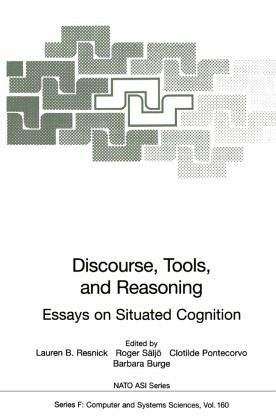
Discourse, Tools, and Reasoning
Essays on Situated Cognition Proceedings of the NATO Advanced Research Workshop on Discourse, Tools, and Reasoning: Situated Cognition and Technologically Supported Environments, held in Lucca (Il Ciocco), Italy, November 2-7, 1993
Mitarbeit: Resnick, Lauren B.; Saljö, Roger; Pontecorvo, Clotilde

PAYBACK Punkte
77 °P sammeln!
To reason is to talk. To think is to use tools. To learn is to join a community of practice. This book explores thought and reasoning as inherently social practices, as actions situated in specific environments of demand, opportunity, and accountability. Authors from diverse disciplines - psychology, sociology, artificial intelligence, linguistics, anthropology - examine how people think and learn in settings as diverse as a factory, a classroom or an airplane cockpit. The tools that people use in these varied settings are both physical technologies and cultural constructions: concepts, structures of reasoning, and forms of discourse.This volume in the NATO Special Programme on Advanced Educational Technology is based on an international conference on situated cognition and learning technologies.
Not long ago, projections of how office technologies would revolutionize the production of documents in a high-tech future carriedmany promises. The paper less office and the seamless and problem-free sharing of texts and other work materials among co-workers werejust around the corner, we were told. To anyone who has been involved in putting together a volume of the present kind, such forecasts will be met with considerable skepticism, if not outright distrust. The diskette, the email, the fax, the net, and all the other forms of communication that are now around are powerful assets, but they do not in any way reduce the flow of paper or the complexity of coordinating activities involved in producing an artifact such as a book. Instead, the reverse seems to be true. Obviously, the use of such tools requires considerable skill at the center of coordination, to borrow an expression from a chapter in this volume. As editors, we have been fortunate to have Ms. Lotta Strand, Linkoping University, at the center of the distributed activity that producing this volume has required over the last few years. With her considerable skill and patience, Ms. Strand and her work provide a powerful illustration of the main thrust of most of the chapters in this volume: Practice is a coordination of thinking and action, and many things had to be kept in mind during the production of this volume.





